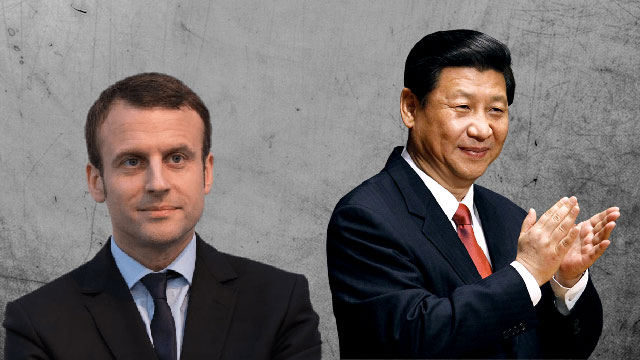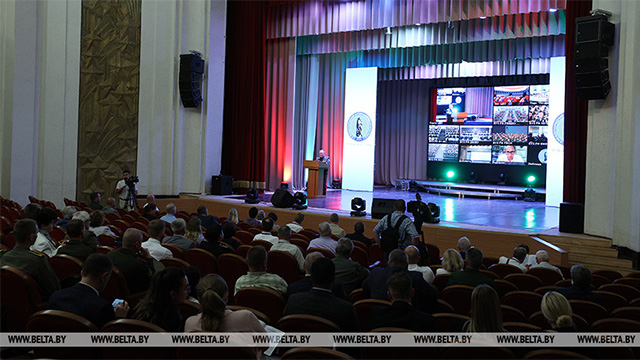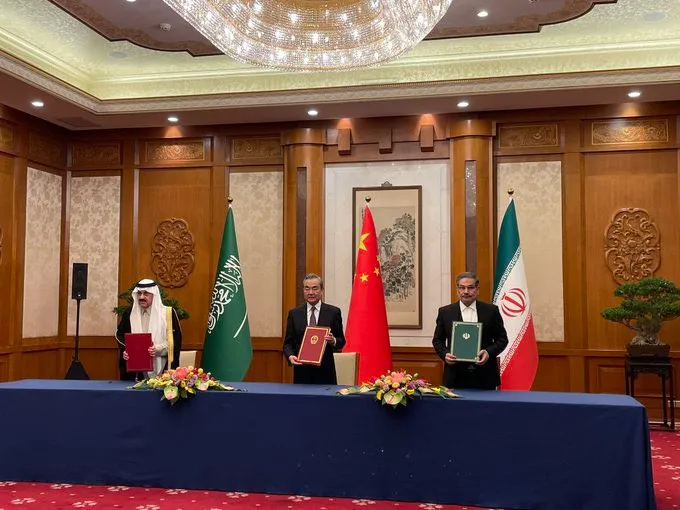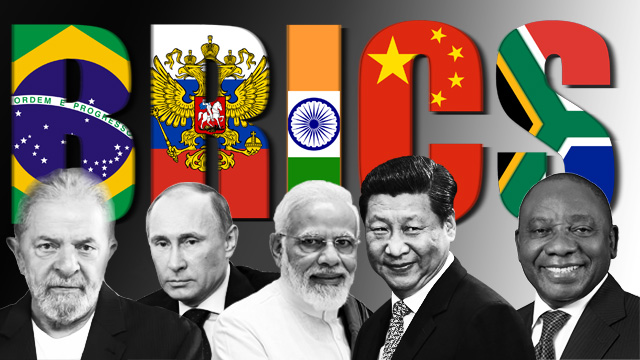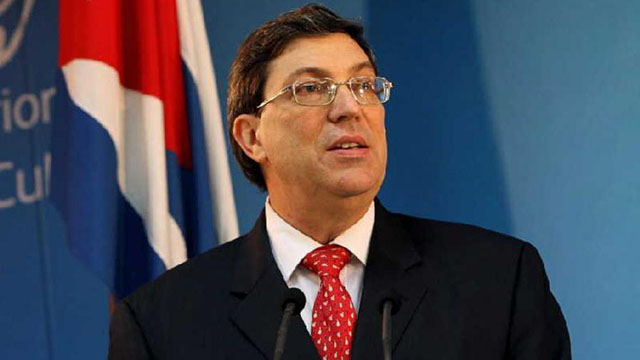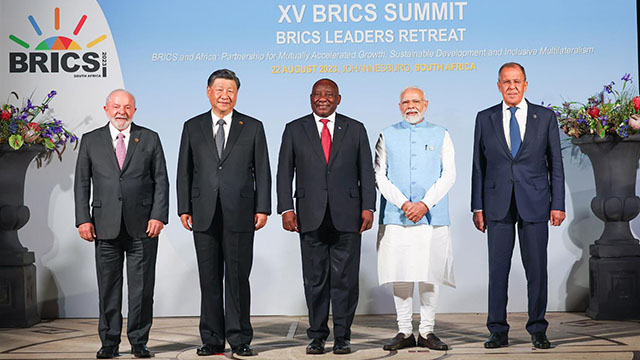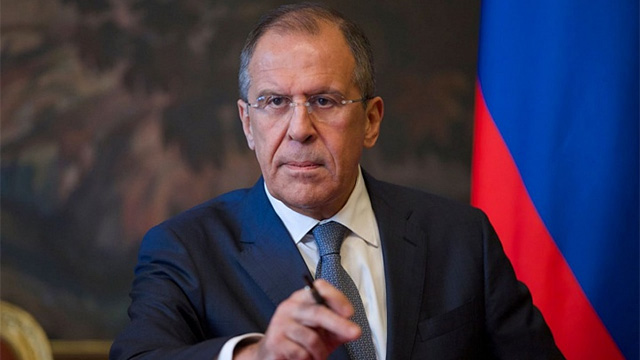Chinese President Xi Jinping met visiting French President Emmanuel Macron on Thursday, April 6th in Beijing. In the meeting, Xi told Macron that although the world situation has changed a lot in the past two years, it has not affected the bilateral relationship between China and France. There was a detailed discussion about Russia’s ongoing special military operations in Ukraine during Xi and Macron’s meeting in Beijing.
Xi underscored the importance of China’s bilateral trade with France and the European Union, in the presence of Macron and the European Commission President Ursula von der Leyen, who arrived for a trilateral talk. Xi said that the visit of Macron and von der Leyen to China shows how the European Union (EU) is eager to grow relations with China, which addresses the common interests of both parties.
The Chinese leader also emphasised that Macron is the first European leader to visit China after “two sessions”. He said that China and France, as the permanent members of the United Nations Security Council (UNSC), and major countries with a tradition of independence, should keep the overall direction of a comprehensive bilateral relationship that is stable, mutually beneficial, enterprising, and dynamic.
He stressed that bilateral relations should inject new vitality into the Sino-European relationship and build new cooperation against the major challenges that both face in the present world.
The Chinese and the French president have agreed on four major areas of cooperation.
Firstly, China and France will strive to maintain a stable and forward-looking bilateral relationship. Both sides will maintain close coordination at the head-of-the-state level; they will regularly hold meetings under three high-level mechanisms on strategic, economic and financial matters, and people-to-people dialogues within 2023.
These two countries will also resume offline exchanges between legislatures and military officials, and respect each other’s territorial integrity, sovereignty and core interests.
Secondly, both parties signed a series of important cooperation agreements on pursuing mutual benefits and common development programmes.
These two countries will cooperate in areas like aviation, aerospace and civilian nuclear energy. They plan to cultivate new growth avenues in areas like green energy, and scientific and technological innovation, including building a China-France carbon neutrality centre and strengthening their training of talents.
Thirdly, Xi and Macron’s meeting also agreed on deepening people-to-people ties and cultural exchanges. In 2024, both countries will celebrate the 60th anniversary of the China-France diplomatic relations and the China-France Year of Culture and Tourism.
China and France will deepen the people-to-people ties through culture, education, language, publishing, film and television and tourism as well as among localities and the youth, and they will also deepen their sports cooperation through the Paris 2024 Olympic Games.
Fourthly, Xi and Macron’s meeting agreed on supporting each other and promoting global governance improvement. Both countries will continue to support a multi-polar world and greater democracy in international relations. Both will oppose Cold War mentality and the formation of military blocs in the world.
China agreed to support France in organising UN Ocean Conference in 2025 while welcoming it to the third Belt and Road Forum for International Cooperation.
At a press conference after Xi and Macron’s meeting, the Chinese president said, “China and France are firm advocates for a multi-polar world and for greater democracy in international relations. They have the ability and responsibility to rise above differences and obstacles, keep to the overall direction of a comprehensive strategic partnership that is stable, mutually beneficial, enterprising and dynamic, and practice true multilateralism for global peace, stability and prosperity.”
Both sides express concern over the ongoing Russia-Ukraine conflict. Ahead of Xi and Macron’s meeting, however, the French president said he would urge China not to arm Russia in any way in the ongoing conflict. But the Chinese president did not make any such promises during their meeting. Rather, he emphasised increasing bilateral trade between China, EU and France.
The Chinese president told reporters that “we have agreed to maintain the stability of bilateral relations, persist in mutual benefit, strengthen cultural exchanges and support each other, and improve the world order.” Xi said Beijing is seeking international stability and it wants all sides to exercise restraint in the Russia-Ukraine conflict.
Xi told reporters that China will continue to speed up peace talks and resolve the Ukraine crisis through political means. Together with France, China wants to maintain international stability and resolve conflicts through effective dialogue.
China has also expressed concern over the growing rift in world relations over the conflict between Ukraine and Russia and the threats the two warring parties have made to each other.
“Regarding the Ukrainian crisis, China will be firmly committed to promoting peaceful dialogue and a political settlement”, Xi said. “We are ready, together with France, to appeal to the international community to maintain restraint, to avoid actions that will further escalate the crisis or cause it to spiral out of control”, he added.
The Chinese president demanded that Russia and Ukraine refrain from using nuclear weapons and refrain from nuclear war, as well as ban chemical and biological weapons under any circumstances. He urged the international community “to overcome the side effects of the Ukrainian crisis in food, energy, finance, transportation and other areas, as well as to reduce the negative impact of the crisis, especially on developing countries”.
Russia has closely observed Xi and Macron’s meeting. Kremlin has said that although China has the potential of getting the two sides of the conflict to agree on peace, the situation in Ukraine is not ripe for peace now. As a result, Moscow will have to continue its special military operations.

